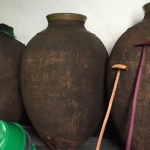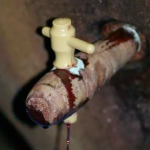Vinho da Talha or tasting wines made the way the Romans did.
In our rapidly changing world, it can make you feel comfortable to discover ancient values not for the matter of age but for their authentic qualities. Vinho da Talha is one of these products: wine made of grapes fermented and aged in amphorae, clay pots the Roman introduced everywhere they have been, also in the Alentejo, a central region of Portugal.
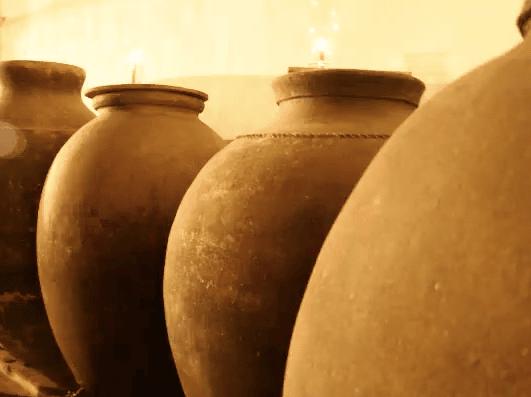
Vila de Frades..
..is quite hidden in the huge Alentejo plain, a region starting east of Lisbon and ending at the Spanish Border. Introduce coordinates 38°12′51.64″N,7°49′22.62″W into the GPS, and you will easily reach this small village, now with less than 1000 people. One enters through a road with some picturesque gardens on the sideline after having passed a place with rests of a once huge Roman farm and its still recognizable wine cellars. The village streets of Vila de Frades are meandering over a hill full of reminiscences of architectural trends of the last two thousand years, really charming and worth to be seen. On November 11th, the day of Sâo Martinho (Saint Martin), this visit gets a distinctive character as it is the day of the official wine tasting: all 12 wine cellars, they were once 150, open to release their new amphora wines for tasting and comparison. It’s the beginning of a festive season culminating three weeks later in a popular gathering of visitors and inhabitants with a lot of music, choir singing, eating of the local specialties and drinking of the new wine. This is the first weekend of December.
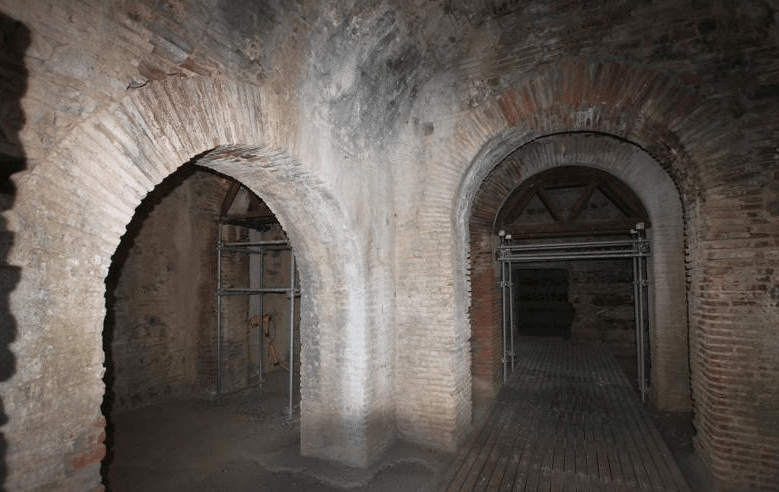
Wines from the Alentejo..
..are well known internationally, as is the region itself. In 2014, USA Today readers have elected it for being the best wine region to visit in the world. The thousands of hours of sunlight that the whole of the Alentejo region benefits, is one of the reasons behind the quality of their wines. Good wine begins in the vineyard! The huge clay pots the Romans introduced some 3000 years ago are covered in the interior with a layer of pine resin, olive oil and bee wax before the hand-harvested and de-stemmed grapes are poured into it. The mix limits the clay pots’ porosity. Once in the ‘talha’, the grapes start their fermentation naturally, without any added yeast. During the first three weeks the grapes’ skins are stirred three times a day, the time of the initial fermentation.
After that, meaning from around mid-September until Sâo Martinho, November 11th, this is done once a day. By the time the wine’s fermentation is complete, all skins will have sunk to the bottom of the pot and will serve as a filter when the wine is poured into the jug of wine or the wine glass through the tap placed at the bottom of the clay vessel. To seal the amphorae, as did the Romans already, a thick layer of olive oil is put on top to prevent oxidation. There are several reasons for liking the amphorae: not only the fact that they are protecting from oxidation in a natural way, but they are contributing to getting the wine really well structured with a nice smooth mouth-feel due to the prolonged skin contact. And there is a special freshness with these wines that age in amphorae, a distinctive character by aromas of lively, fresh fruits, which have been allowed to express themselves naturally in their evolution towards becoming wine, a pure expression of the grape varietal.
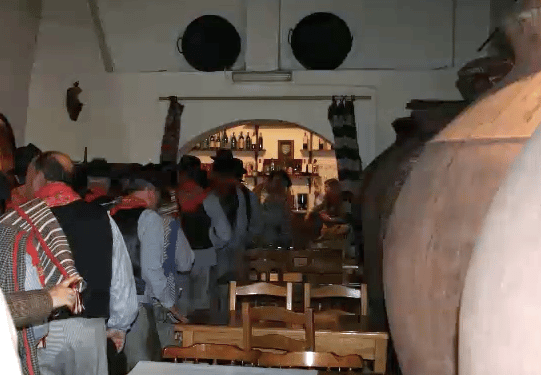
Vila de Frades is one of several places maintaining the tradition of amphorae aged wines. Vidigeira, Ervidel, Borba and Mourâo are some of the other localities in the Alentejo where you will also find this tradition alive, uninterrupted since Roman times. Whilst tasting the wines you will get to know a delicious local gastronomy, rendering any journey very special and authentic.
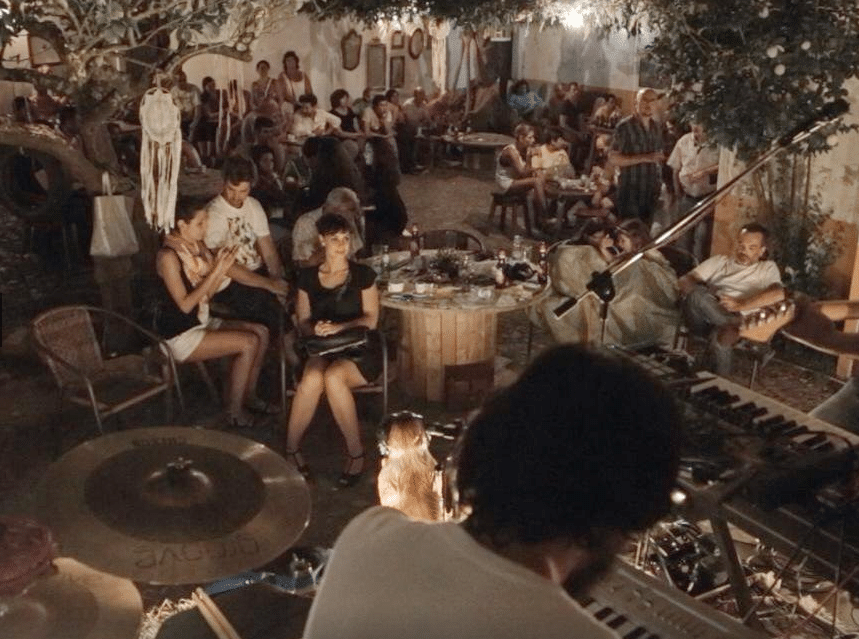
Several Portuguese wine makers have reintroduced the art of producing wine in amphorae as one kind of wine they produce. Some of them also started converting vineyards into organic ones. One of them is the wine producer and owner of the well-attended restaurant Pais das Uvas in Vila de Frades. Tired of observing his vines getting weaker year after year by the debilitating effect of pesticides and herbicides, he resolved to re-orientate his wine production into a completely organic one, not only organic in the wine cellar through amphora fermentation, but organic in the vineyard.
In times of climate change and ongoing global discussions about how to preserve a balanced ecosystem worldwide, the possibility of aging wine in amphorae appears like an interesting phenomenon reuniting tradition and modernity, and is certainly eligible to be part of the discussion regarding the environmental impact of winemaking.
